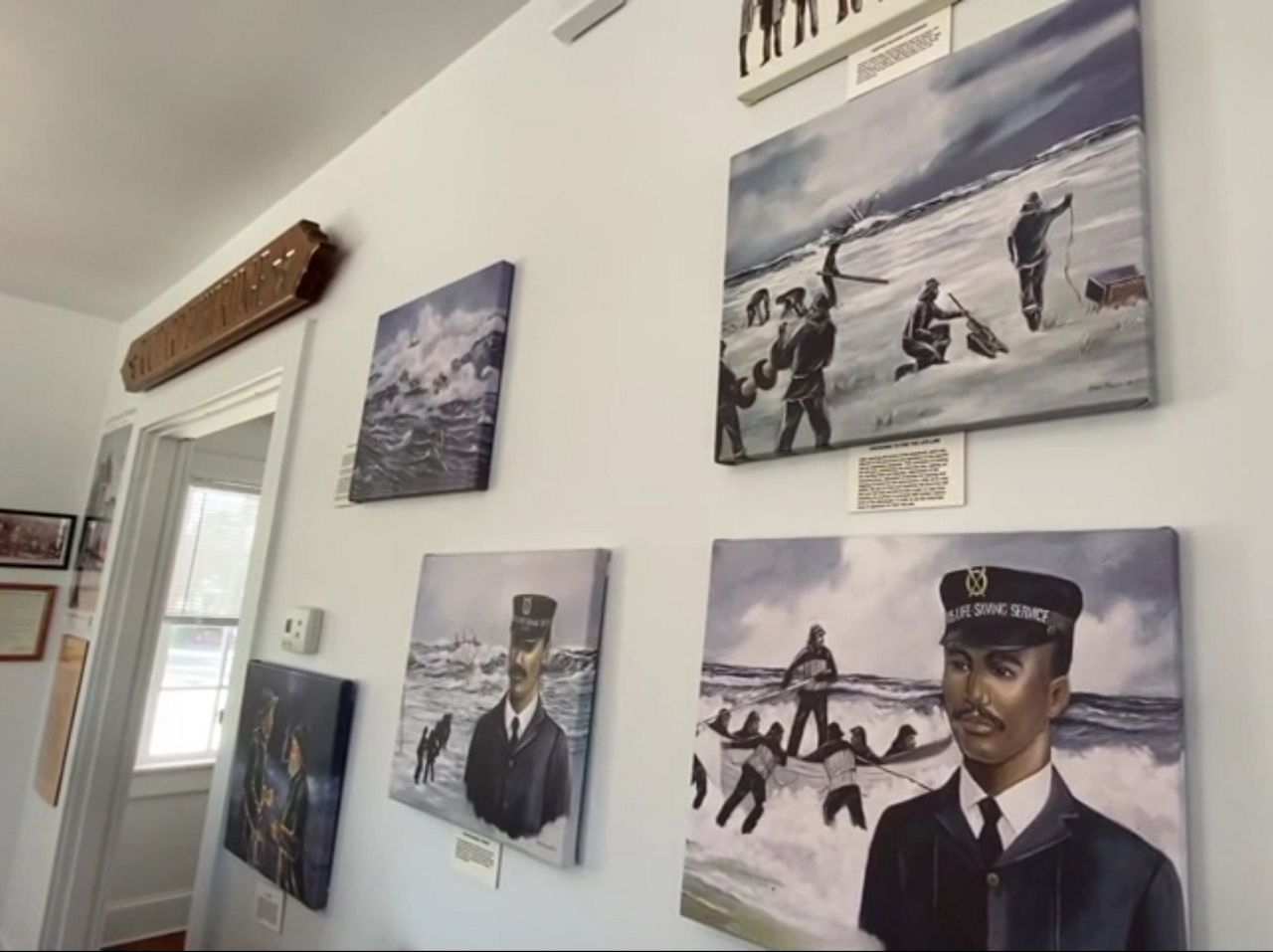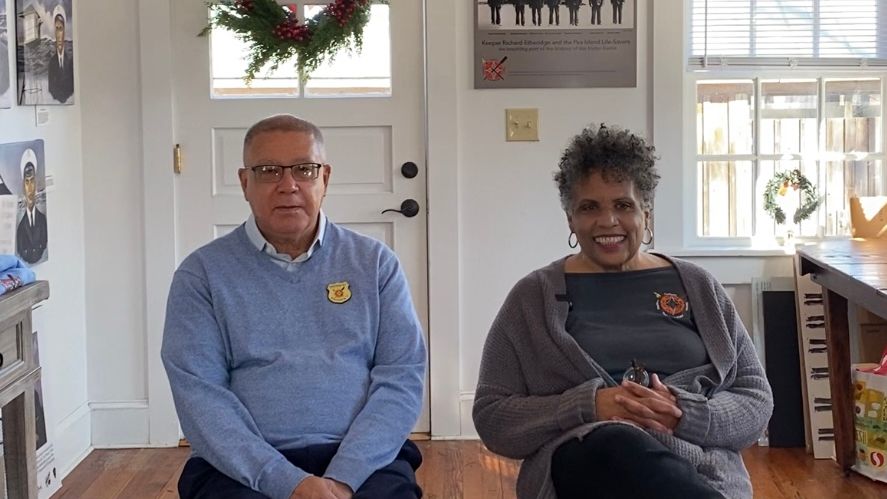MANTEO, N.C. — Joan Collins and her cousin Darrell Collins are committed to preserving the little-known Black history of the Outer Banks.
Together they lead the Pea Island Preservation Society and Pea Island Cookhouse Museum. The museum tells the story of the only lifesaving station in the United States to have been manned by an all-Black crew and the first Black keeper, Richard Etheridge.
The collection of artifacts and photographs isn't just a history lesson — both Darrell Collins and Joan Collins have a deep connection to the stories.
"We have a combined record of family service in the Coast Guard of 400 years," Darrell Collins said. "These are some of our relatives here. Benjamin Bowser, he's a cousin. Norman Pugh is our great uncle. On my mother's side, Stanley Wise, he is a great uncle, too."

Etheridge was a former slave who served in the Civil War and when he returned to his home on Roanoke Island, he joined the lifesaving service. He became part of the first "checkerboard crew" of Black and white surfmen. He rose through the ranks and was promoted to keeper.
"Richard Etheridge, as Darrell mentioned, rose from the lowest rank and was asked to become the keeper, and the first thing that happened was the whites couldn't, wouldn't or didn't work for him any more, so that's how they got the first all-Black crew," Joan Collins said.
Despite any discrimination they faced, they developed a reputation for skill and preparedness.
"What they had to do was look for ships in distress. You know, they would stand in watch towers during the day and then patrol the beach at night," she said.
Those skills proved to be invaluable in 1896 when the E.S. Newman, a three-masted schooner, wrecked in a hurricane. Etheridge's team saved all the crew members of the ship.
Their heroic efforts weren't recognized until 1996, and they were posthumously awarded the Gold Lifesaving Medal.
The Collins family wants to inspire others with the story of the surfmen, just as Etheridge inspired generations of Black men and women to serve.
"If this station and Richard Etheridge can be the vehicle to making this part of Black history known, and the role of the United States lifesaving service, I think that would be a fantastic outcome," Joan Collins said.
For more information about Pea Island Life-Saving Station, visit the Pea Island Preservation Society website.






